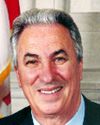Madam Speaker, I am hearing some interesting comments being thrown back and forth. The last Liberal questioner just does not understand the objective of the Bloc. The Bloc is not out to give tax breaks to the rich. The Bloc is out to tax the rich. It is exactly the opposite. It is complaining that billions of dollars are disappearing because they are hidden in family trusts. It wants to tax those people. It wants its share of the revenues.
How can a Liberal member who is listening to the debate say the Bloc wants to give tax breaks to the rich? This is what is wrong with the Liberal government. It is the spin it wants to give the thing. It is the perception it wants to create. Liberals are interested in perception, not reality. They are not listening to what the debate is all about.
It is a shame that a gentleman who is as good at communication and can express himself so eloquently would waste those God given talents on distorting the truth and the facts.
Nevertheless I am a member of the Standing Committee of Public Accounts. I was also present when the issue was debated there. As Reformers my colleague from the riding of St. Albert and I were very concerned about the issue. The Liberal spokesperson from public accounts who addressed the issue refuted what the Bloc members had to say. She did a reasonably good job of explaining the circumstances.
I find interesting now that it is relatively over, so to speak, her recollection of the facts: the events are now wonderful. She praises the auditor general when the chairman of the Standing Committee of Finance, who was present in the House today, openly criticized the auditor general for having the audacity to question the transfer of these trusts to the United States. That is the reality. He criticized the auditor general and now the Liberal spokesperson is praising the auditor general.
Another fact conveniently distorted or interpreted different from the way I saw things happen was when this hit the newspapers and it was out there, the Bloc Quebecois did make a big issue out of this and raised family trusts. It was on family trusts from the very first meeting we had on the GST the first year it came here. It is an issue that it is very concerned about and very much interested in.
This issue comes to the forefront and lo and behold, the finance minister tried to pre-empt the responsibilities of the public accounts committee and take away its right to review the situation. He shoved it off to the Standing Committee on Finance where it wanted to review all of this and not have it under public accounts.
We know the public accounts committee is the one that is supposed to be looking at the comments of the auditor general and from that ask for witnesses and testimony. We felt that the Standing Committee on Finance could do what it wanted and we also looked into it.
In pursuing the issue I have some other facts I would like to present. Looking into it, trying to get to the bottom of it, trying to find out whether there were some tax dollars that should have stayed in Canada that ended up not being collected, those are honourable and good questions.
Imagine a system once they form the government in the new country of Quebec. They are going to publish names of taxpayers they are investigating. That is not right. That is not the kind of tax system I would like to have or a country I would like to be in. That is a private matter and is very confidential. On that issue I definitely disagree.
The chairman of the Standing Committee on Public Accounts in one of his questions earlier today was concerned about what kind of system we have where somebody asks for an advance ruling. I think that is good system. An advance tax ruling on a complicated
issue is a service that Revenue Canada should provide. It is a service that is very valuable and is used very often.
When some people are into very complicated financial transactions and the implications of moving funds around in trust to find out how the tax department would treat it, whether it would be taxed right away, deferred or not taxed at all, these are important elements to consider. Advance tax rulings are a process we in Canada, a lot of individuals and businesses, appreciate.
The actions of Revenue Canada on this issue are suspect for the reason, as I recollect the facts, that on the second ruling the department in all its documentation, in everything that was in the files prior to the last meeting, indicated it was not going to give a favourable ruling. It was to rule against this movement of assets, taxable properties, within a family trust
All of sudden it is reversed. Why? The purpose of the public accounts committee was to find out and ask witnesses. We still do not have a clear answer on that. We do not know why there was a reversal. Certainly it is its right to reverse it but when all the documentation, all the arguments and all the evidence as it builds a file and review a case are leading it in one direction, why all of a sudden is it changed?
The Bloc is asking good questions. Why is there special treatment here? Was there special treatment? Was there favouritism? Was this an order by a cabinet minister who said reverse it? Was it politically motivated? We tried to get to the bottom and we could not. The Standing Committee on Finance then made some recommendations and it theoretically closed the loopholes.
What was happening that was wrong while the committee was doing this? While the Standing Committee on Finance was reviewing the issue, the Minister of National Revenue froze all other transactions of this nature, denying for six to seven months the rights of other Canadians to obtain advance tax rulings and to make transactions within trusts. It was done at the expense of other taxpayers.
It was something the Minister of National Revenue should not have done. She should have allowed the process to continue because if the decision was a good decision and if the decision had the facts to support the action from a tax point of view, it should have been a precedent which would have been available for other Canadians. It seemed to us in committee that the government was trying to hide it, push it under the rug and not let us get to the bottom of it. It was frozen.
Then the loophole was closed and we were told it is finished. However, like I say, there was a price to pay in doing that.
I would like it to be known that this transaction had with it a tax liability. The trust went to the United States. It went to New York state. We found out that the way the deal was made, the way the ruling came down, this could be allowed to happen but only if during the next ten years, from 1991 to the year 2001, if any of those assets were cashed in, if any of it was liquidated, the tax liability would be owing to Canada and Canadians would receive that money. Theoretically, as we are debating this issue today, if those individuals were to do anything to liquidate certain assets within the trust, the moneys would be taxed and the tax would be owing to Canada.
After the ten years the tax would be owing and payable in the United States, in New York state. However, these individuals did not do this to avoid paying tax. The tax liability is there. It is a question of whether it is payable to Canada or to the United States. Ten years from the date of the agreement the tax is owing to Canada.
As well, the tax rate in New York state on this trust would have been higher than it is in Canada. Therefore to argue that these individuals were trying to avoid taxes or trying to pay lower taxes is not true. I would like to let it be known that these people were just looking for ways to get their trust moved around.
Did this happen in such a way that there should have been an immediate tax liability on the assets payable to Canada? I do not know. I do not know the technicalities. I cannot say whether there should or should not have been. However, other Canadians should not have been denied the same rights while this was being looked at.
The public accounts committee went as far as it could, with good intentions. We were not quite satisfied with all the answers. There were minority reports filed.
With respect to the matters of tax liability, tax avoidance and tax concurrence there is an honour system in Canada. I am starting to get the sense that the government is becoming tougher and is not willing to trust Canadians. The government amended the Income Tax Act in the last budget, which is to come into force this year. Now we are going to be requested on our income tax forms to not only report our income, tax liability, how much was deducted at source and how much is still owing, but a year from now the government is going to ask all individuals to list their foreign assets. We will not only have to report our income and the liability on that income, we will have to report our foreign assets. Why? The government does not trust Canadians. It feels that some Canadians are hiding assets offshore and not paying tax on them when they are sold, not declaring their gain on the assets.
Our system in Canada hires a lot of people. Revenue Canada has a budget of $2.2 billion, 44,000 employees. There are some darned
good auditors. Those auditors are the ones who should be looking at who is and who is not paying taxes on offshore assets. Why not do that?
If there is a problem with the business immigration plan and some immigrants are not following the system, audit more of them. We know that when a tax avoidance scheme or a tax shelter develops and the business community takes undue advantage of it, the auditors audit research and development grants until we find out what is legitimate and what is not and we find out that some people were cheating. That is how to solve it, not putting in the Income Tax that one must under penalty of imprisonment or under penalty of something else. That drawing and quartering is ridiculous. That is not the way we should be going.
Today something happened in public accounts that is all related to what we do as a committee. A very important issue was raised about generally accepted accounting principles and how government commitments are booked; the $961 million transition payment to the three Atlantic provinces; the $800 million commitment for the foundation for innovation.
Bloc members were ready to debate this. Reform was ready. The auditor general was at the committee along with the deputy minister. These people were kind enough to show up to discuss the issue so that I would either stop criticizing or continue to criticize the finance minister. There are seven Liberal members on that committee. Not one of them showed up and the chairman had to cancel the meeting. That is a shame and I do not think it is in order.
I feel I have contributed as much as I can to shed light on what happened on this issue.














































